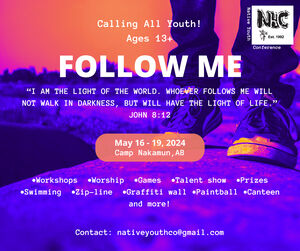Tribe buys iconic Snoqualmie Falls
Last updated 4/8/2020 at 2:18pm
EVERETT, Wash.-The Snoqualmie tribe from Washington recently paid $125 million to purchase one of the state's most popular attractions: Snoqualmie Falls
The 268-foot waterfall attracts more than 1.5 million visitors a year. Besides the falls, the tribe has purchased , along with Salish Lodge and 45 acres of land.
"This purchase represents the Snoqualmie Tribe's ongoing work to reclaim its traditional lands and will allow the Snoqualmie people to appropriately care for our sacred Falls and share it with all who wish to experience the powerful connection," said tribal chairman Robert de los Angeles.
The tribe plans to install signage and educational materials on the site to bring the cultural context of the falls to visitors and residents and to halt proposed developments on adjoining land.
Under the 1855 Treaty of Point Elliott, the tribe relinquished all land from what is now the city of Everett to Snoqualmie Falls. However, the federal government did not recognize the Snoqualmie people as an independent tribe until it won a lawsuit in 1999.
That lawsuit opened the door for the Snoqualmie tribe to purchase the falls and adjoining land that has long been held as a sacred site by their people. In Snoqualmie mythology, Moon the Transformer created the falls from a fish trap to try and get the salmon to spawn further upstream.
In 1850, European settlers arrived in the Snoqualmie Valley, and in 1889, the town was established with an underground power plant built to harness the power of the river. The plant is still operational. Joined by a second powerhouse, the facility can currently supply power to more than 20,000 households.
A second underground powerhouse was built in 1910 and expanded in 1957. The facility currently produces enough power on average to supply more than 20,000 households. The Snoqualmie tribe could conceivably remove the dam if they desired.
"For generations, our tribe has been vocal and public in our intent to protect this sacred site and return the falls to its natural flow. As landowners we have more leverage that we'll be using as a sovereign nation," De los Angeles told Newsweek
The tribe has halted a planned development by the City of Snoqualmie, which was to include construction of a hotel, conference center, 175 residences and a parking lot. The tribe filed a lawsuit in 2016 to block construction, claiming the city did not consider environmental and cultural impacts upon approving the plans.
"We bought this land to prevent the expansion of the Salish Lodge onto our burial grounds, our religious areas and our gathering places that we've held dear to our hearts for the last thousand years, maybe longer," said tribal vice-chairman, Michael Ross.
The land and Salish Lodge were previously owned by Washington's Muckleshoot tribe, which purchased them for $62.5 million in 2007, according to the Seattle Times. The lodge, which was built in 1919, is operated by Columbia Hospitality, which will continue their contract with the Snoqualmie tribe.
"People only see this fight in the small scale of this time. Since the signing of our treaty and the building of the Salish Lodge in 1916 which, when it opened, didn't allow any people of color, even tribal members, to enter, moving to today with us as the rightful owners once again of our land, it's a beautiful story that deserves to be shared," Ross told Newsweek.








